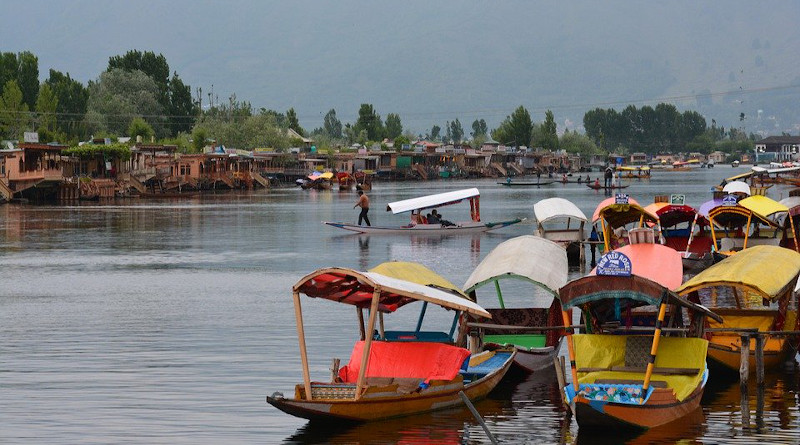Kashmir Remains Unsettled – OpEd
The recent decision by the Indian Supreme Court to uphold the revocation of special status for Jammu and Kashmir has reignited concerns about potential human rights violations in the region. The abrogation of Article 370, which granted significant autonomy to the contested area, has not only reshaped the administrative landscape but has also intensified scrutiny on its human rights implications. Critics argue that the move by the ruling Bhartiya Janata Party (BJP) may contribute to the marginalization of Kashmir’s Muslim-majority population. The decision to direct the region to hold local elections by September 30 next year adds another layer of complexity to an already sensitive issue. As debates on the constitutional validity of the decision persist, the focus on safeguarding the rights and well-being of Kashmiris remains a crucial aspect of the ongoing discourse.
The backdrop to this legal battle dates back to 2019 when Prime Minister Narendra Modi’s government, in a bold move, abrogated Article 370 of the Indian constitution, which granted significant autonomy to the contested Jammu and Kashmir region. The region had enjoyed this autonomy since the aftermath of the first India-Pakistan war over the Himalayan region in 1947. However, Modi’s government argued that Article 370 was always intended to be temporary and justified the revocation as a necessary step for the region’s development.
Since August of this year, India’s top court has been immersed in hearing a series of petitions challenging the constitutionality of the abrogation. On Monday, a panel of five judges delivered a unanimous decision, affirming Modi’s move and emphasizing the temporary nature of the special status granted to Jammu and Kashmir. Chief Justice DY Chandrachud underscored the historical context, stating that Article 370 was an interim arrangement due to war conditions in the state. The ruling party’s narrative aligns with this perspective, emphasizing that the special status was always meant to be a temporary provision. However, the ground realities say something else, and the decision usurps the rights of thousands of Kashmiris.
Ajai Shukla, a defense analyst in New Delhi, views the abrogation as a political maneuver aimed at appeasing the Hindu-majority electorate in India. He points to a polarization within the ruling party, which sees anti-Muslim sentiments as a means to consolidate political support. Shukla argues that for the government, fulfilling the promise of revoking Article 370 is a strategic move. Prime Minister Modi, in response to Monday’s ruling, hailed it as “a beacon of hope, a promise of a brighter future.” The Indian Premier took to social media to express his optimism, framing the decision as a resounding declaration of hope, progress, and unity for the people in Jammu, Kashmir, and Ladakh.
In the wake of this Supreme Court decision, India contends with transformative shifts in the political terrain of the region. Monitoring the implications for the fragile equilibrium of power, historical tensions, and regional stability becomes paramount. The revocation of Article 370 not only reconfigures the administrative framework of Jammu and Kashmir but also exacerbates pre-existing fault lines, requiring a nuanced strategy to navigate the intricate dynamics of this unfolding scenario. Above all, the Kashmiri population finds itself stripped of fundamental rights and the special status it had enjoyed since 1947. As we reflect on this decision, it is imperative to address the human rights concerns that accompany the political upheaval in Kashmir. The abrogation of Article 370 has created an environment where the rights of the Kashmiri people are at risk. Critics argue that the move, purportedly aimed at development and integration, may instead lead to the marginalization of the Muslim-majority population in the region. The imposition of direct central rule eliminates the autonomy that Jammu and Kashmir once had in legislative matters.
The decision to hold local elections by September 30 next year introduces another layer of complexity. While elections are a fundamental aspect of democratic governance, the circumstances under which they are being directed raise questions about their legitimacy and the level of participation from a population grappling with the aftermath of significant constitutional changes. Holding elections in an atmosphere of political uncertainty and security concerns adds a challenging dimension to the democratic process. The international community cannot afford to ignore the implications of these developments. Human rights organizations and global leaders must closely monitor the situation in Kashmir and advocate for the protection of the rights of its people. The decision to revoke Article 370 has not only altered the political landscape but has also heightened tensions and increased the vulnerability of the Kashmiri population.
In conclusion, the Supreme Court’s decision to uphold the revocation of special status for Jammu and Kashmir marks a significant chapter in the complex history of the region. The political and constitutional changes introduce a new set of challenges and uncertainties. While political leaders express optimism and disappointment, the focus must remain on the human rights implications and the well-being of the Kashmiri people. The international community must play an active role in ensuring that the rights and aspirations of the Kashmiri population are not overshadowed by political maneuvers and regional power dynamics.


Writer of this article and his ISI patron flogging a dead horse.